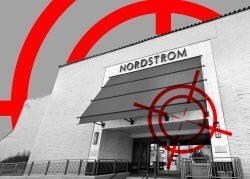Chanel acquired a building across the street from San Francisco’s Union Square, the city’s retail center, for $63 million, showing confidence in an area hit by an exodus of shops and looting last year.
The French luxury fashion brand bought the three-story, 18,000-square-foot property at 340 Post Street from Los Angeles’ Stockdale Capital Partners, the San Francisco Business Times said. The deal was recorded with the city’s Office of the Assessor-Recorder on Dec. 20 but hadn’t been reported earlier.
Chanel’s Bay Area presence includes a four-story, 11,000-square-foot store in the square that it’s leased since 2008 and a location in Palo Alto’s Stanford Shopping Center. While Williams-Sonoma occupies the Post Street site, between an Apple store and a Tiffany shop, it’s “virtually certain” Chanel will open a store there, the Business Times said, citing past examples in markets such as Beverly Hills’ Rodeo Drive and New York’s Madison Avenue..
The company is betting on Union Square’s recovery despite the luxury shopping district’s record availabilities last year and difficulties dealing with crime. Crowds looted the square in November, burglarizing Louis Vuitton, Burberry, Maxford’s Jewelry, and other high-end brands. Major retailers began exiting the area before the pandemic, which has accelerated the exodus to include the likes of H&M, Marshalls and Uniqlo, the Business Times reported.
Some reasons for optimism remain: Luxury watch brand Omega last year opened a boutique outlet in Union Square, its first in the city, while luxury jeweler Van Cleef & Arpels intends to open a store there in the spring. Italian handbag and footwear maker Bottega Veneta filed plans with the city last year to almost double the footprint of its existing location in the area.
“These top brands see the data on their current and future sales potential in Union Square and are acting on it,” CBRE’s Laura Sagues Barr, who specializes in retail and consumer properties and wasn’t involved in the Chanel deal, told the Business Times. “They know this is a critical global market.”
[San Francisco Business Times] — Matthew Niksa
Read more

